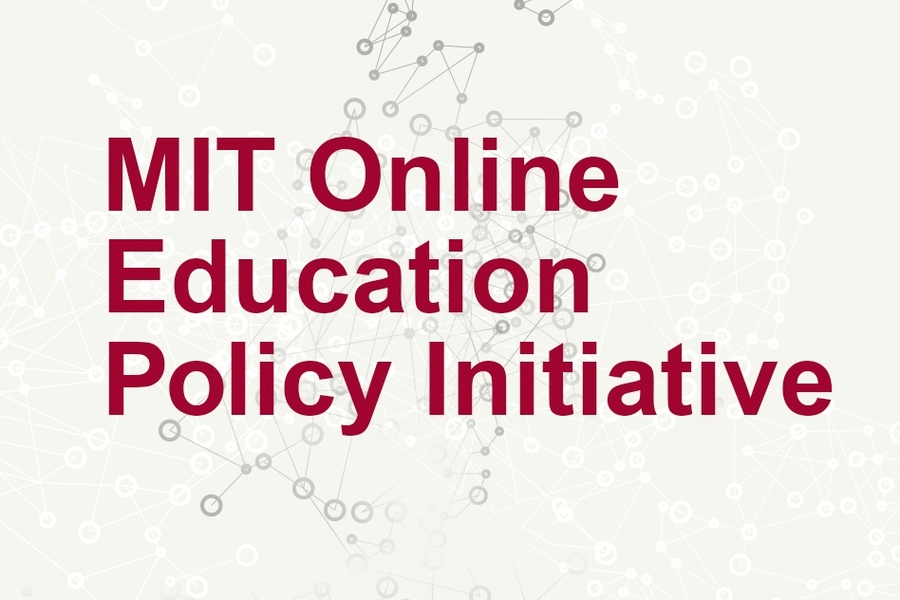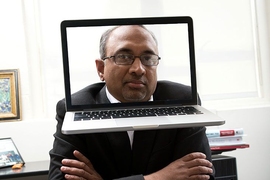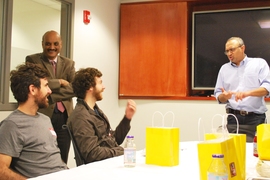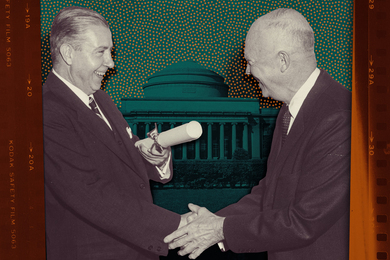Through its newly created Online Education Policy Initiative (OEPI), made possible by a grant from the Carnegie Corporation of New York, MIT aims to catalyze the national conversation on the future of education and online learning.
Led jointly by Professor Karen Willcox and Dean of Digital Learning Sanjay Sarma, the initiative’s broad objectives are: to explore teaching pedagogy and efficacy, institutional business models, and global educational engagement strategies — and to present a cohesive report on these issues that can be used by policymakers and leaders in education; to engage in the public discourse surrounding online learning and to encourage productive discussion; and to aid policymakers in creating a welcoming environment for educational innovation.
“There’s been much written about online education recently,” Sarma says. “OEPI is an opportunity to pause and have a thoughtful, scholarly discussion about everything from the cognitive psychology of learning to the policy implications of online courses.”
Amplifying MIT’s pioneering expertise in digital learning with the perspective of an exceptional group of external advisors, OEPI will be an important step toward MIT’s goal of enabling educational innovation on campuses, for providing access to millions worldwide, and for conducting research about learning. OEPI’s internal working group consists of distinguished faculty and researchers from across MIT, deeply committed to education research and practice. OEPI’s external advisory group will bring together leaders in the learning sciences, social sciences, and cognitive sciences to collaborate on the future of online learning. Its members represent the perspectives of both private and public research universities, liberal arts colleges, non-profit organizations, and for-profit educational institutions.
"We are very pleased to have assembled a distinguished group of leaders in online education who represent a breadth of perspectives,” Willcox says. “OEPI is an opportunity to bring these perspectives together and contribute to the national conversation on online learning."
Local impact, national implications
On campus, OEPI will engage the community in several ways, including a public lecture series co-sponsored with the Office of Digital Learning, and, in May, a workshop on online learning pedagogies, sponsored by the National Science Foundation.
On a national level, the work of OEPI will have broad implications for educational policy and planning. The final OEPI report, to be released in early 2016, will provide comprehensive policy recommendations, which members of OEPI will share through extensive briefings in Washington, D.C., with policymakers, legislative and agency staff, and other key influencers and decision-makers.
MIT’s broader involvement in digital learning
From edX and MITx to their predecessor, OpenCourseWare, MIT has helped pioneer the field of digital learning. The faculty members involved in OEPI have industry-leading experience researching, designing, and creating online learning activities, and this experience will be magnified by contributions from OEPI’s external advisory group. Building on contributions from OEPI, MIT can inform policy discussions with research — a role it has played recently in energy and manufacturing policy.
To learn more about OEPI, visit oepi.mit.edu and stay tuned for related lectures and events this coming spring and fall.









